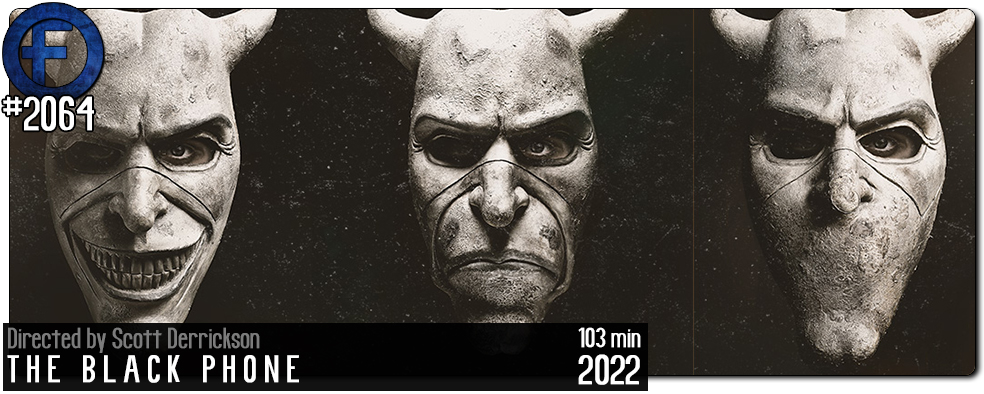Movie Review – Black Phone, The
Principal Cast : Mason Thames, Madeleine McGraw, Ethan Hawke, Jeremy Davies, E Roger Mitchell, Troy Rudeseal, James Ransone, Miguel Cazarez Mora, Rebecca Clarke, J Gaven Wilde, Jordan Isaiah White, Brady Ryan, Tristan Pravong, Jacob Moran, Brady Hepner, Banks Repeta.
Synopsis: After being abducted by a child killer and locked in a soundproof basement, a 13-year-old boy starts receiving calls on a disconnected phone from the killer’s previous victims.
********
Popular horror director Scott Derrickson returns to the genre he is best at with The Black Phone, a dark, foreboding entry into the canon of psychological terror that features Ethan Hawke and a gaggle of superbly cast child actors, all of whom elevate this highly effective movie well above what the simple premise might require. Derrickson, best known for the Sinister franchise, as well as helming the first Doctor Strange movie – he was unceremoniously let go from the MCU following “creative differences” – co-writes The Black Phone with long-time associate C Robert Cargill, and manifests both every kid’s nightmare and the worst fears of every parent: that of an abducted child. The film will be considerably triggering for some, so be warned that a horror film featuring a large ensemble of younger actors cannot help but have horrible things happen to them, so if you don’t like violence against youngsters then I’d advise giving this one a miss. If you aren’t fussed, however, with fictional depictions of varying degrees of bodily mayhem, The Black Phone will satisfy the gristly, grimy appetites of all who lift the handset.
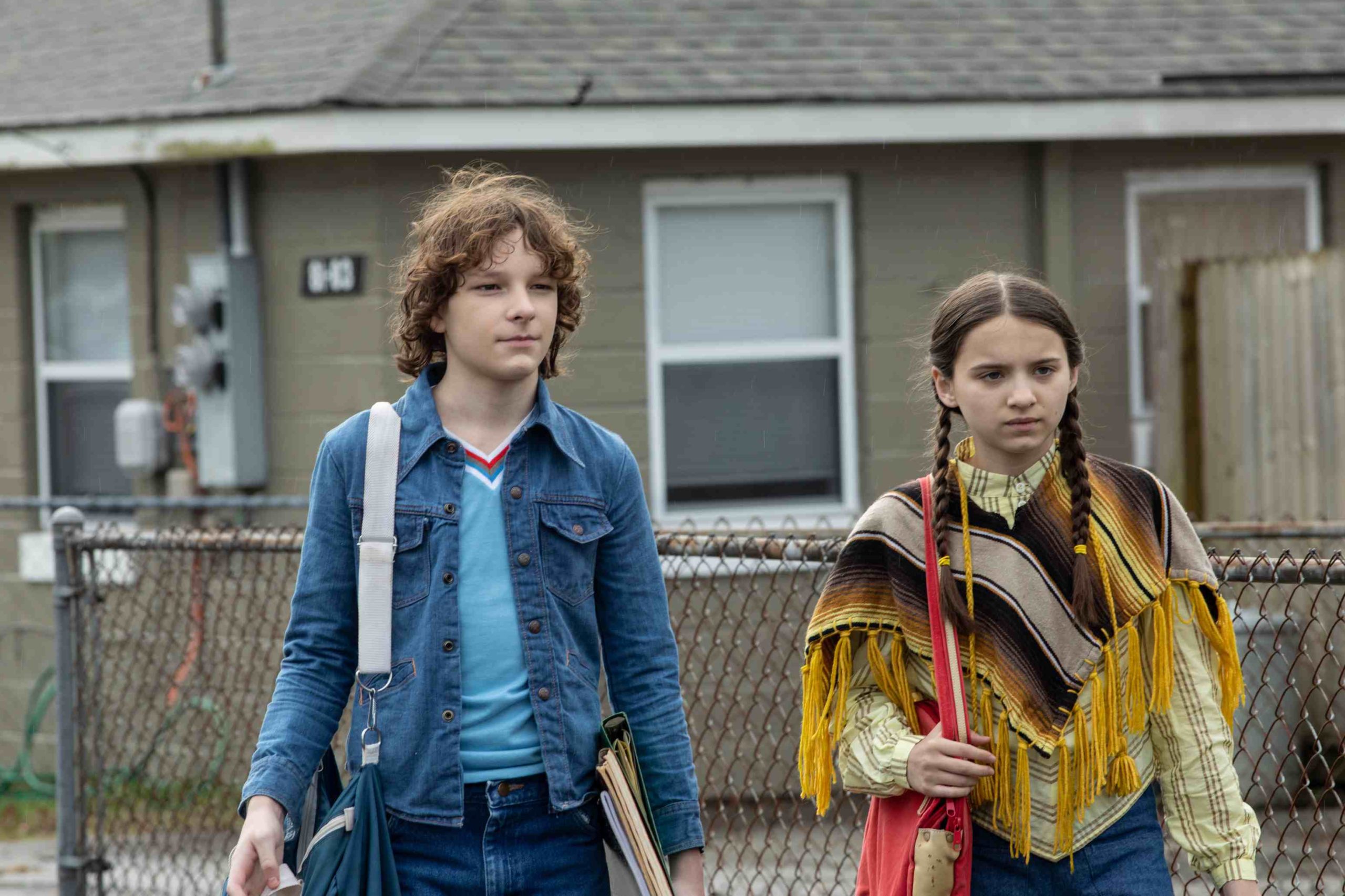
Set in Denver in the late 1970’s, a serial abductor nicknamed “The Grabber” (Ethan Hawke) is trolling the streets quite literally grabbing young kids and taking them back to his lair. Siblings Finney (Mason Thames) and Gwen Blake (Madeleine McGraw) live with their alcoholic and abusive father Terrence (Jeremy Davies) and become worried when several of their classmates go missing, never to be seen again. After school one day, Finney is abducted by The Grabber and imprisoned in a soundproofed basement, accompanied only by a mysterious black phone which has been disconnected from the main line. Terrified, Finney tries to figure out a way to escape but cannot; until, that is, the phone starts to ring and a series of mysterious, otherworldly voices begin to talk to him. Meanwhile, Gwen, who has visions and dreams that assist the police, searches for her lost brother throughout the suburb, all while her disbelieving father’s violence threatens to stop her. A pair of upstanding law enforcement officers, Detective Wright (E Rodger Mitchell) and Miller (Troy Rudeseal) are on the case, stopping at nothing to find Finney before he too meets the same fate as those taken before him.
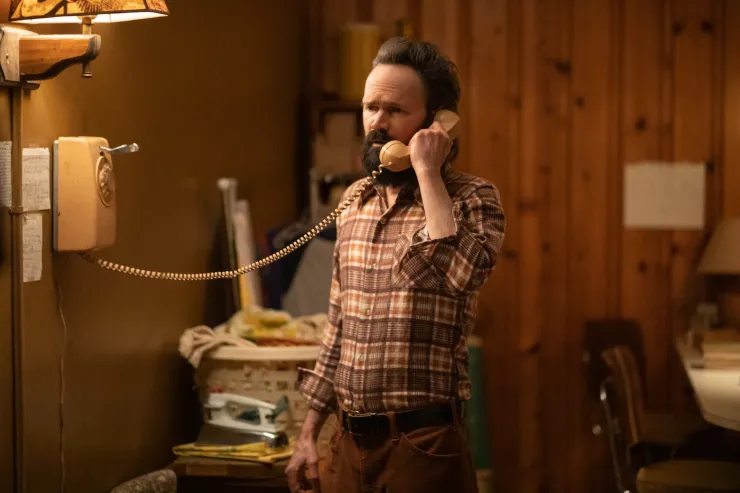
I was really taken with just how much The Black Phone felt like a Stephen King novel, echoing refrains found in both IT and Stand By Me. I’m unsure if this was intended, and maybe I’m reading too much into the 70’s-era sepia tone Derrickson employs throughout the film, but there was much satisfaction in this being a period film rather than set in the modern times. A lack of technology immediately rises the tension in stories such as this, because our heroes have to use their wits to escape danger rather than simply calling the cops on their phones. The film’s screenplay is derived from an anthology collection of short stories by author Joe Hill, first published in 2005, and co-writers Derrickson and Cargill have pumped the thing full of absolute dread in just about every corner of Finney and Gwens lives; from their violent father, the omnipresent school bullies making their days a living hell, and the overshadowing threat of the Grabber’s horrifying antics, there is danger to be found almost without exception. Taking this sense of dread and manifesting it both in the monstrous both literal – the Grabber – and the supernatural – the various spiritual voices Finney hears down the Black Phone in his basement prison – the film’s fingernail-shredding tension is ably ensconced in Derrickson’s commanding visual style, a style similar to that of fellow horror filmmaker James Wan, and the final act juxtaposition of our hero’s attempts to escape capture and the external narrative of police locating the premises in which the boy is being held actually had me holding my breath on more than one occasion.
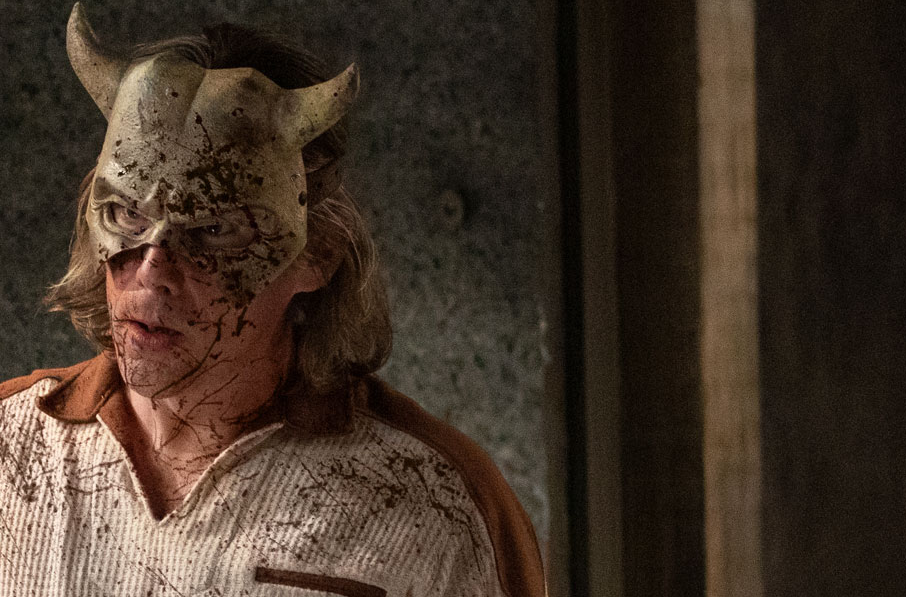
As mentioned earlier, the film will be quite triggering for those with young children or those who’ve lived experiences with child abuse of some form, and I would not approach The Black Phone lightly if this is you. The power of the film’s darker themes stems from the crucial performances of the young cast, notably Mason Thames, Madeleine McGraw and the various denizens of the school they all attend. Child actors can often feel wooden or too staged to overcome a viewer’s suspension of disbelief, but Derrickson’s casting of Thames and McGraw is a masterstroke for the film’s piercing rawness. Both Thames and McGraw have a sparkling chemistry between them, and act the hell out of being brother and sister in the film. Alongside the gasping anger of Jeremy Davies’ grieving yet violent prone father role, they excel – a truly moving sequence in which McGraw’s Madeleine is beaten by her father, screaming at him to stop while Finney is powerless to act, nearly moved me to tears… as well as white hot rage. It’s this realism and sinking despair that permeates the film that allows the central kidnapping plot elements to work as well as they do, putting you in the frame of mind you need to understand and go with the various spooky shit the writers have concocted.
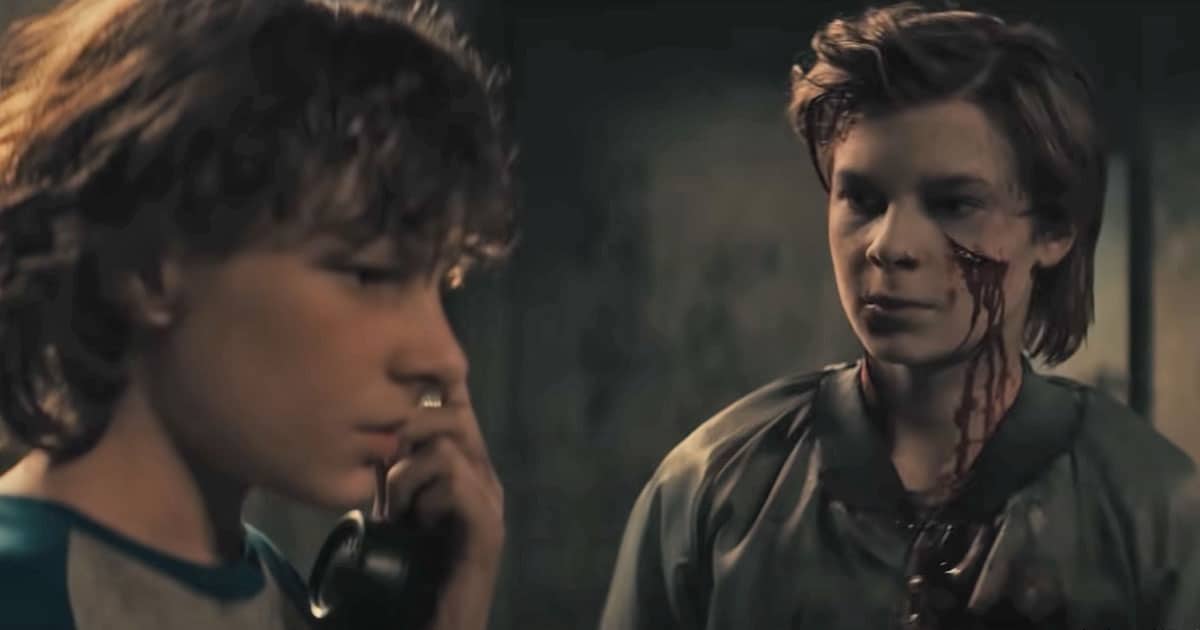
For his part, Ethan Hawke’s Grabber role is, well, largely undemanding, both of he and the audience. Sporting a mask stolen from the set of the Purge movies and growling his way through a generic serial killer archetype, Hawke is unable to instil much fear in his presence and dominate the screen, leaving the bulk of the heavy lifting to be done by his smaller (and less experienced) co-stars and Derrickson’s atmospheric direction. This is less to do with Hawke’s performance and more to do with the script, which doesn’t seem to know quite what to do with the Grabber once he’s fully in the frame instead of simply lurking at the fringes of the film’s opening act. Still, Hawke appears to be having a blast beneath the demonic makeup and ritualism he imbues the character with, and watching him in action, even with such a thinly unveiled role, is always a pleasure.
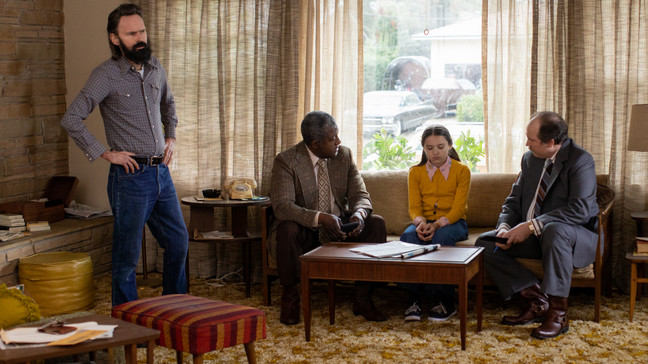
While it might not offer the wham-bang horror thrills of Insidious, Don’t Breathe or Derrickson’s own Sinister, there’s a lot to enjoy about the slow-burn nature of The Black Phone’s delightfully dark aesthetic. The period production design is stellar, the cast of young actors is equally terrific, and the central plot is one that instantly strikes fear into any parent; where the film stumbles a little is in trying to stretch out the fairly thin overall story and turn secondary or tertiary characters into something the writing isn’t strong enough to support. Yes, the film runs a respectably brief 100 minutes or so, but the middle-act does sag a touch, while the Madeleine character’s supernatural gifts aren’t explained or examined well enough to turn the climactic catharsis into something as euphoric as it needs to be to slake the thirst of happiness-hungry audiences. Despite this mid-film sag, The Black Phone is still an exquisitely crafted test of nerves for the viewer, thrust into a breathlessly dangerous kidnap-horror combination that had me gripping my armrests incredibly tightly. Again, a trigger warning is in place on the film for its endangerment of children as a key motivator in the plot, but brave souls willing to take on the film’s exacting narrative will find themselves greatly rewarded.

